The internship «PSI Parasite Scene Investigation – Come to be an Investigator for One Week!», a joint project between GHTM and «Ciência Viva – National Agency for Scientific and Technological Culture» grabbed the attention of four secondary school students.
The four secondary students and Prof. Sofia Cortes, PhD.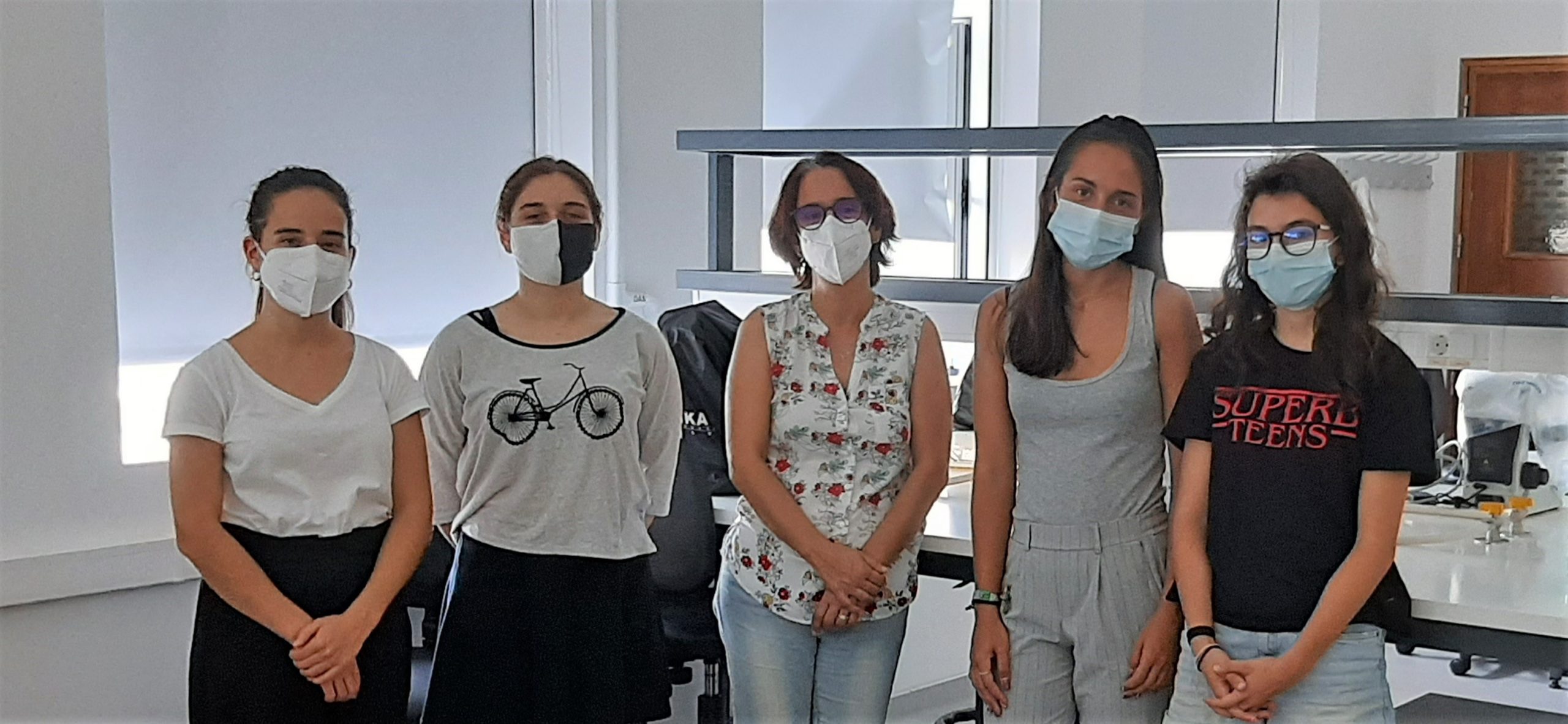
GHTM’s Prof. Sofia Cortes, inspired by the many CSI TV series, had the cunning idea of challenging secondary students to be «PSI investigators». This apparently simple idea – just 3 letters long – was able not only to immediately connect to the lab scenes CSI fans have in their memories, without further explanations, but also to entice their wish to participate! This is a marketing guru’s dream! Well done Prof.!
The trap worked like a charm and, despite occurring on the second week of August – sun, beach, sea, you know – it caught four intelligent teenage feminine human specimens to work for 5 days in GHTM’s labs, in what could be called «GHTM for Teens – PSI». Girls’ rule! Get use to that!
Without further ado, let us call the courageous young investigators! [Drumroll!].
Having 16, and just finished her 11th year of schooling, here comes Francisca! [Round of applause].
Having 17, wrapped up their 12 years of mandatory schooling, and applied to the university, they are Beatriz, Julieta, and… Beatriz!? Yes! There’s another one! [Round of applause]
The four secondary students and the MSc student Maria Almeida.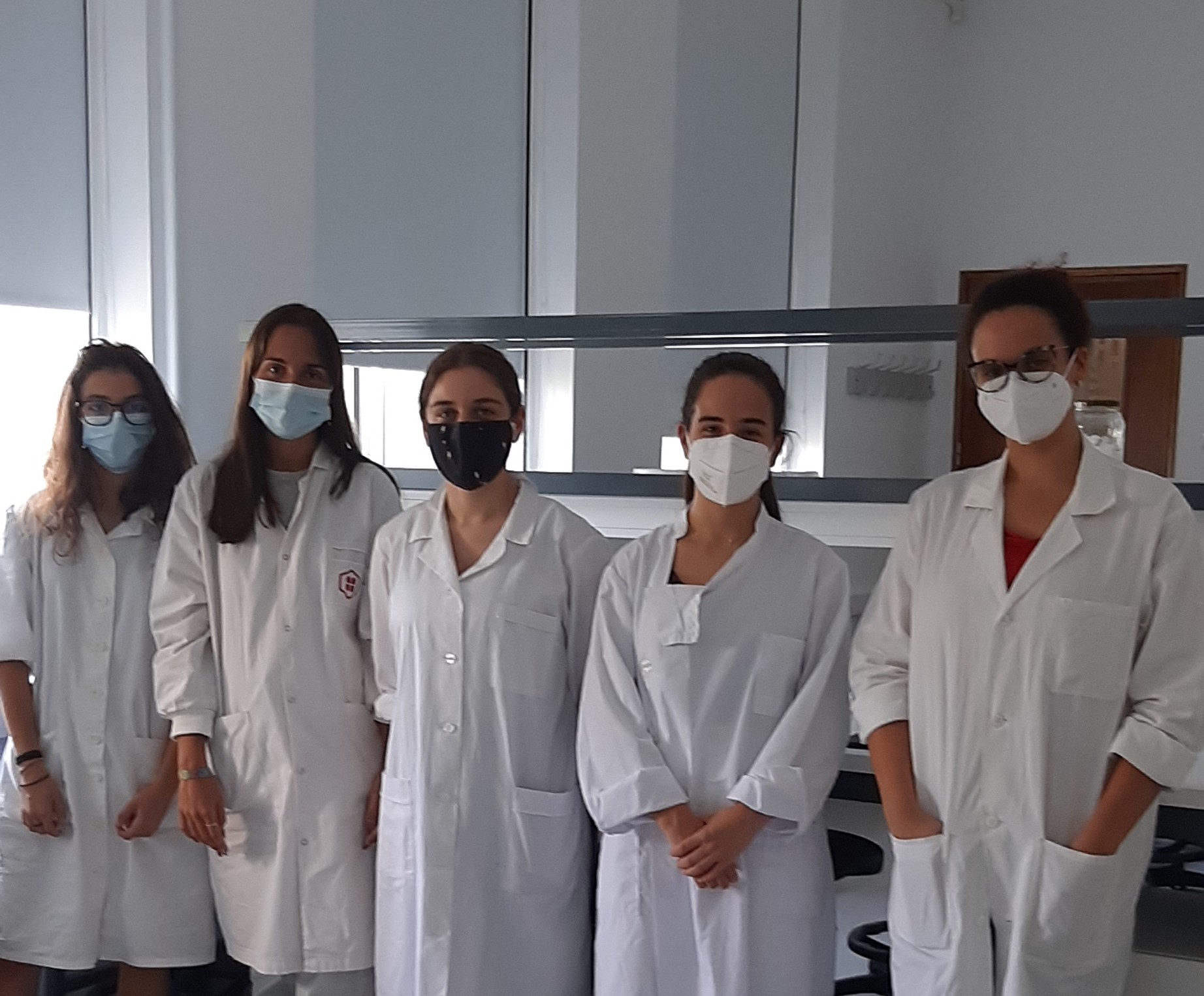
Throughout the one-week internship, the four girls had the opportunity to learn about some vector-borne diseases, like Chagas disease, human African trypanosomiasis, malaria, or borreliosis, and the microscopic parasites that cause it, which are being investigated at the Global Health and Tropical Medicine Research Centre. Hence, they had to see those very small, yet quite nasty, creatures under the microscope. However, one of those diseases, that afflict mainly people and dogs, besides other mammals, was chosen as the internship’s case study for a deeper investigation: leishmaniasis caused by, at least, 20 species of trypanosomatid protozoans. Several case studies of suspected leishmaniasis were provided for the students’ follow. With respect to the laboratory work, and only after being acquainted with its basic procedures, they learned and performed various parasitological (microscopy and cultures), serological (antibody research) and molecular (DNA amplification) techniques to identify the presence of the parasite causing the clinical forms of the disease.
Curious about their agenda’s details?
Wait no more:
Monday
- To play an Icebreaker Game for personal introductions of the four secondary students and the two researchers, Prof. Sofia Cortes and the MSc student Maria Almeida, who helped in all lab activities throughout the week.
- PSI kick-off with its four fundamental questions: What are parasites? What is leishmaniasis? How is it transmitted and manifested? How is it diagnosed and treated? Presentation of case studies for the laboratory component.
- Visit to Leishmaniasis Group’s laboratories of the Medical Parasitology Unit.
- Preparation and microscopic observation of stained slides and Leishmania parasites in culture.
Tuesday
- Serological diagnosis: Direct Agglutination Technique (DAT).
- Molecular diagnosis: DNA extraction from samples; PCR technique for amplification and detection of the parasites’ DNA.
Wednesday
- Visual assessment of the DAT technique’s results and its discussion.
- Continuation of molecular diagnosis: preparation of the agarose gel and electrophoresis of the PCR products.
- Visualisation and discussion of the electrophoresis’ results.
- Start of the final presentations’ writing about the practical work and its results.
Thursday
- Other parasitic diseases, their parasites and vectors: observation of definitive preparations under the microscope.
- Visit to the IHMT insectary.
- Visit to the Leptospirosis and Lyme Borreliosis Laboratory, Medical Microbiology Unit.
Friday
- Presentation and discussion of results.
- Knowledge consolidation game.
- Internship evaluation.
Having had one week of lab parasitology, the four students, understood:
- The effects microorganisms have on people and pets’ health;
- The importance of knowing the parasites’ life-cycles;
- The relevance of molecular techniques on diagnosis;
- How critical it is parasitology to find therapeutic solutions.
The four girls were quite happy with the placement according to the survey they filed. They found the theme very interesting and liked a lot the time they were working in the laboratory. Considered that the internship went beyond their expectations and loved it. Nevertheless, there was one criticism: one week was too short!
«GHTM for Teens – PSI» project’s ultimate goal is to incentivise the interest for life sciences and, of the four teenagers, two, which were applying to that area at the university, said they were more decided than ever after that week. Go girls!
The girls’ week in pictures!
Peeking the Leishmania parasite under the microscope.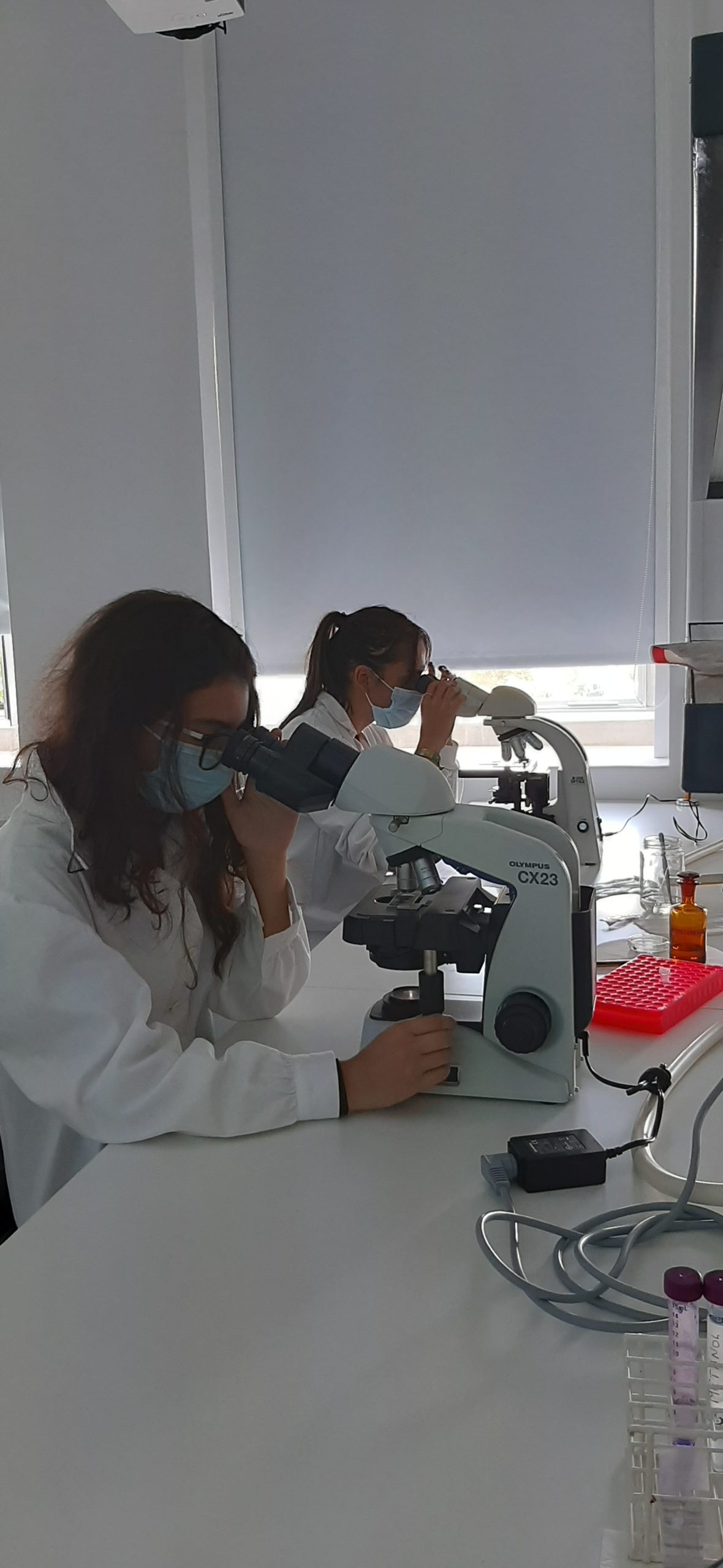
Preparing the agarose gel for electrophoresis.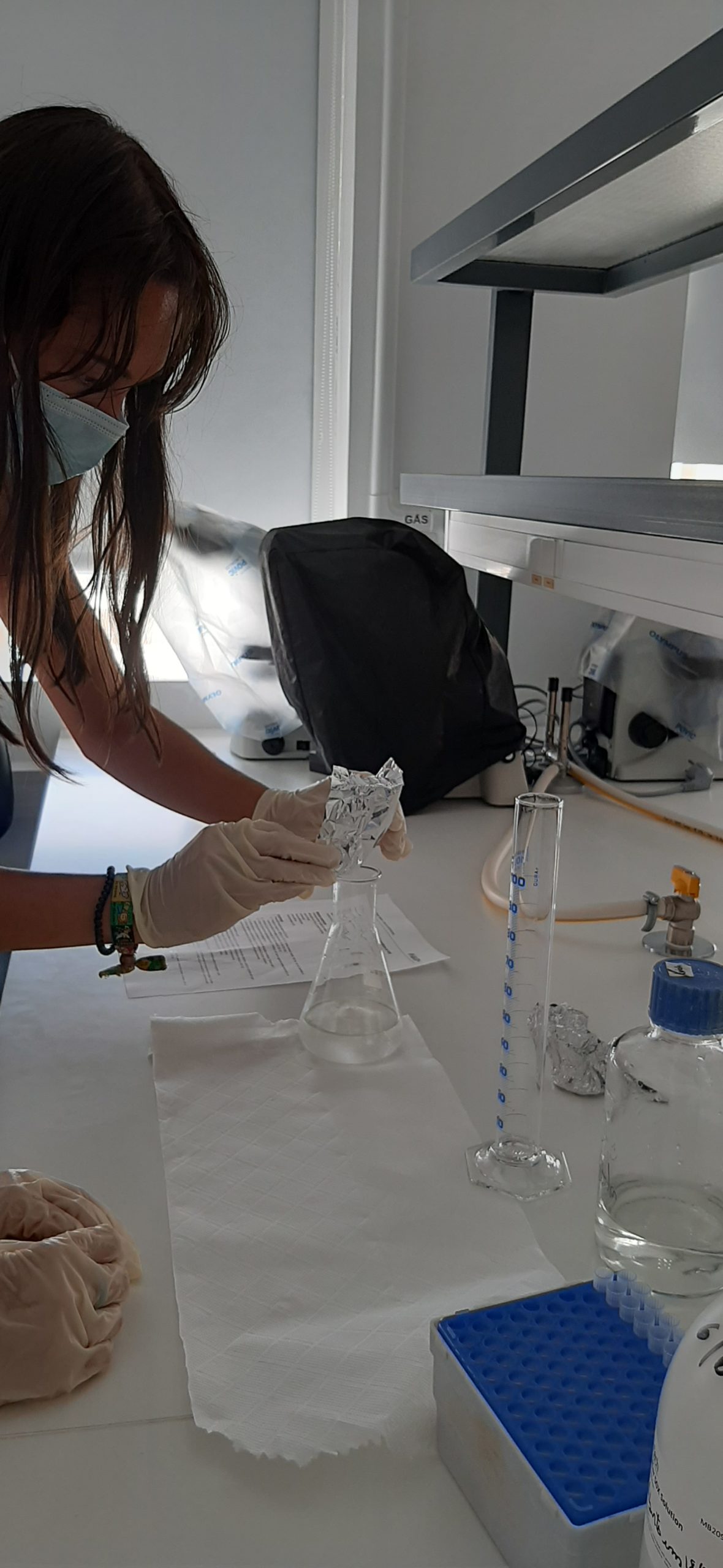
Laying Leishmania’s DNA samples for PCR.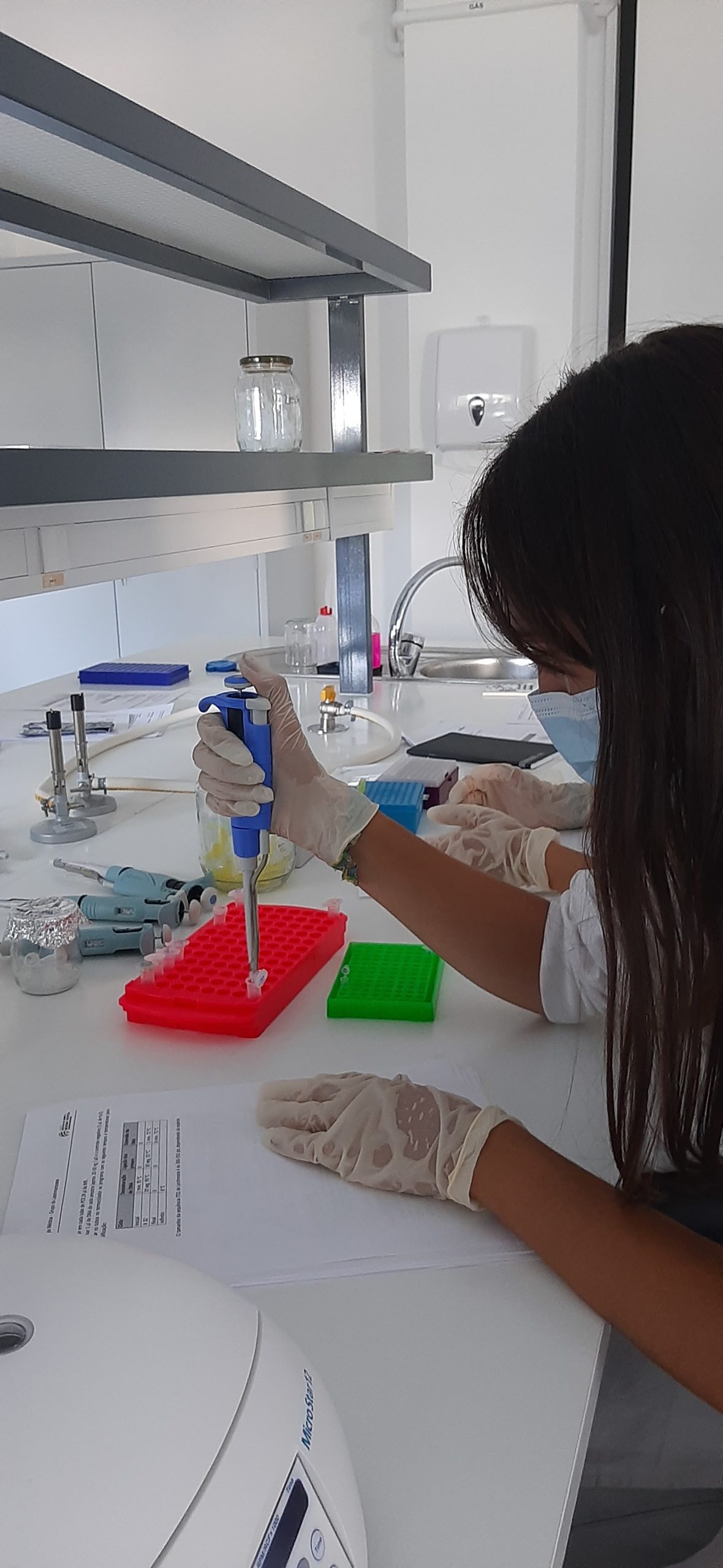
DNA samples’ loading in the agarose gel.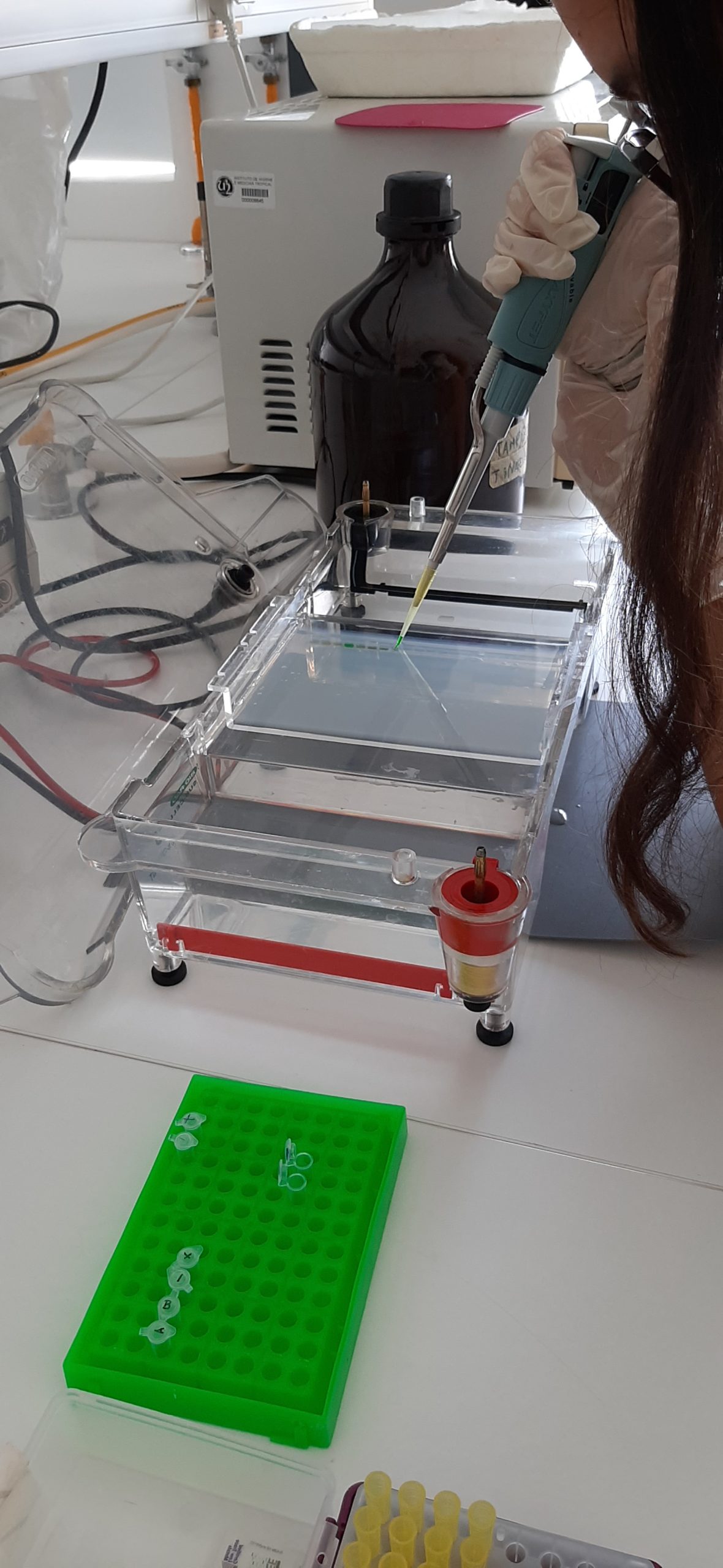
Visualisation of the separated DNA strands.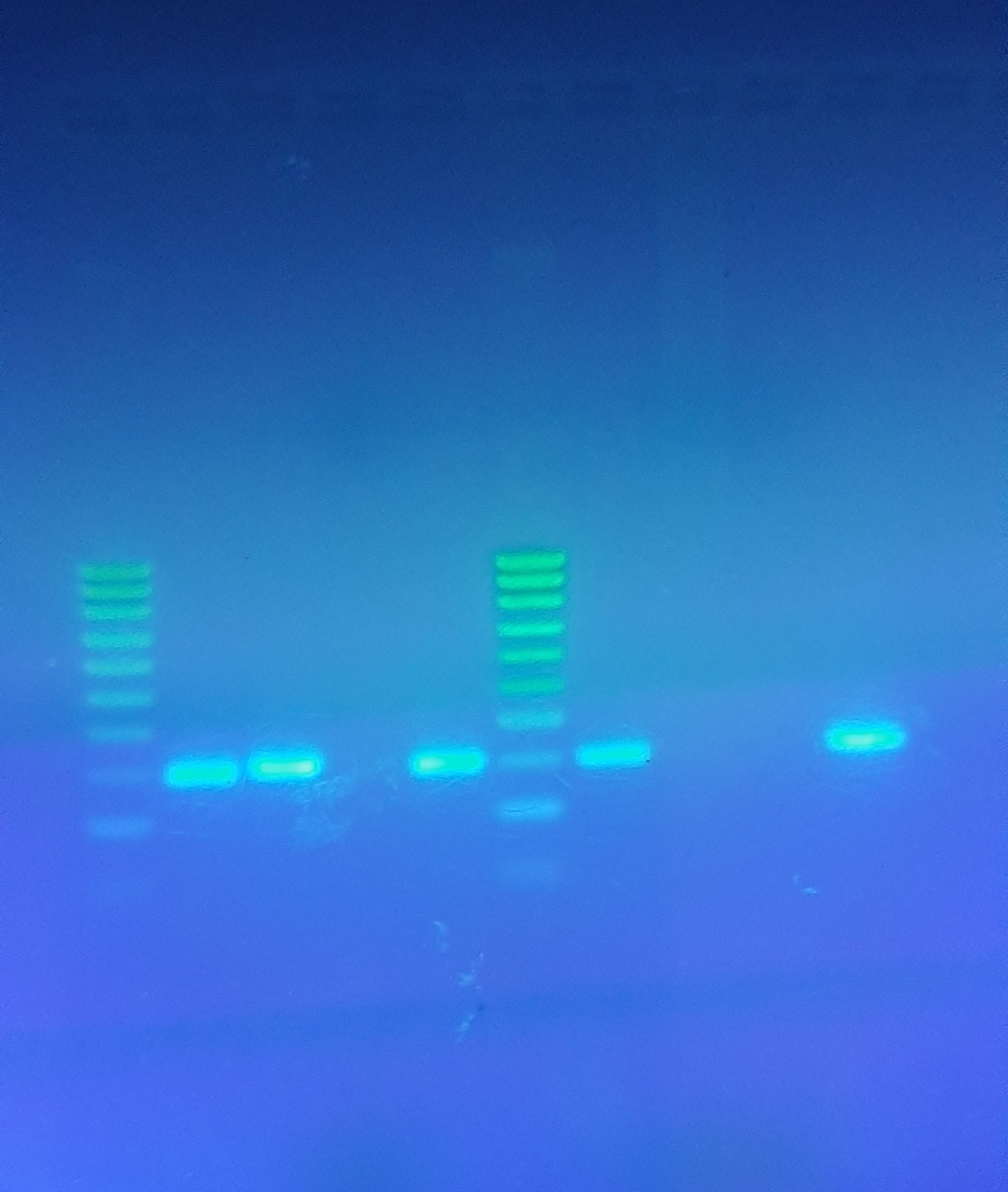
Students’ final presentations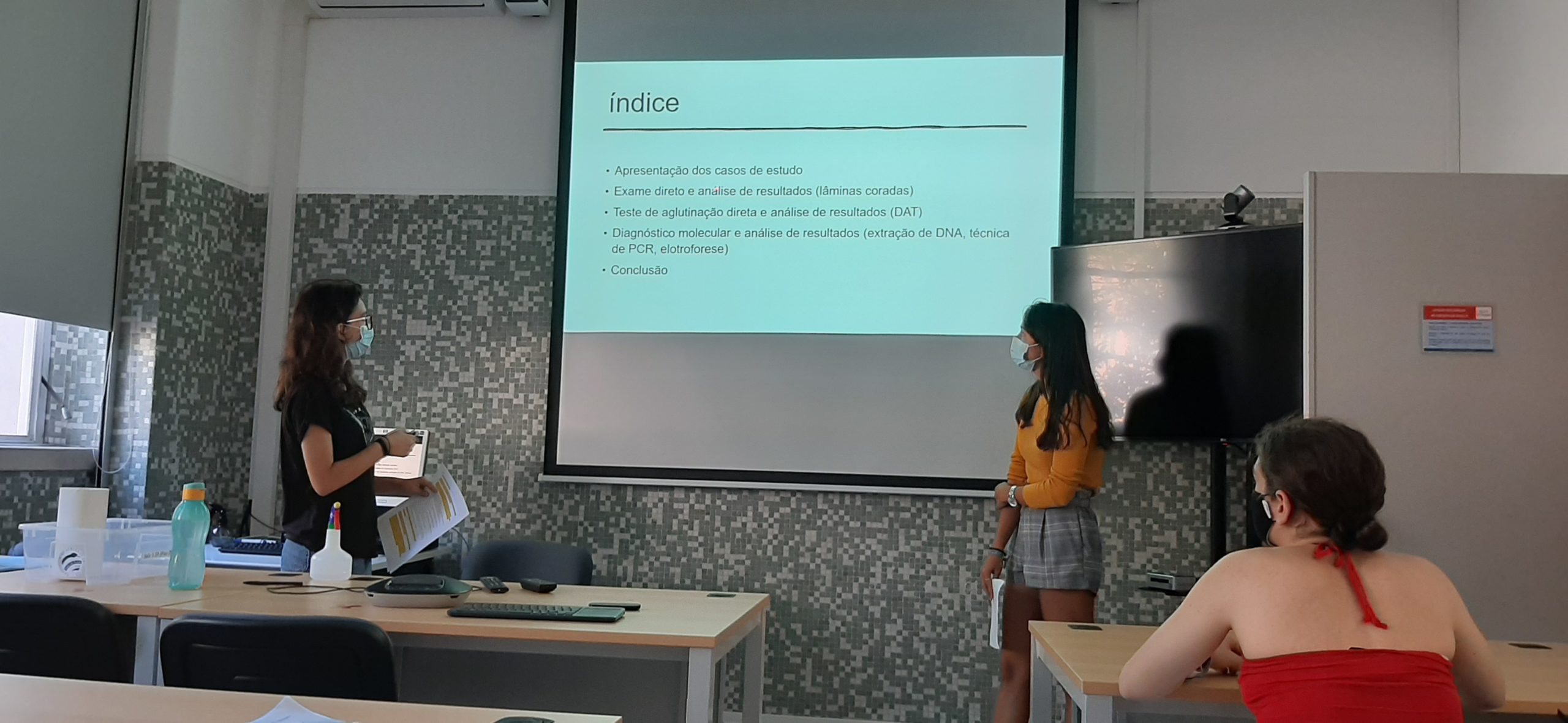
Knowledge consolidation game.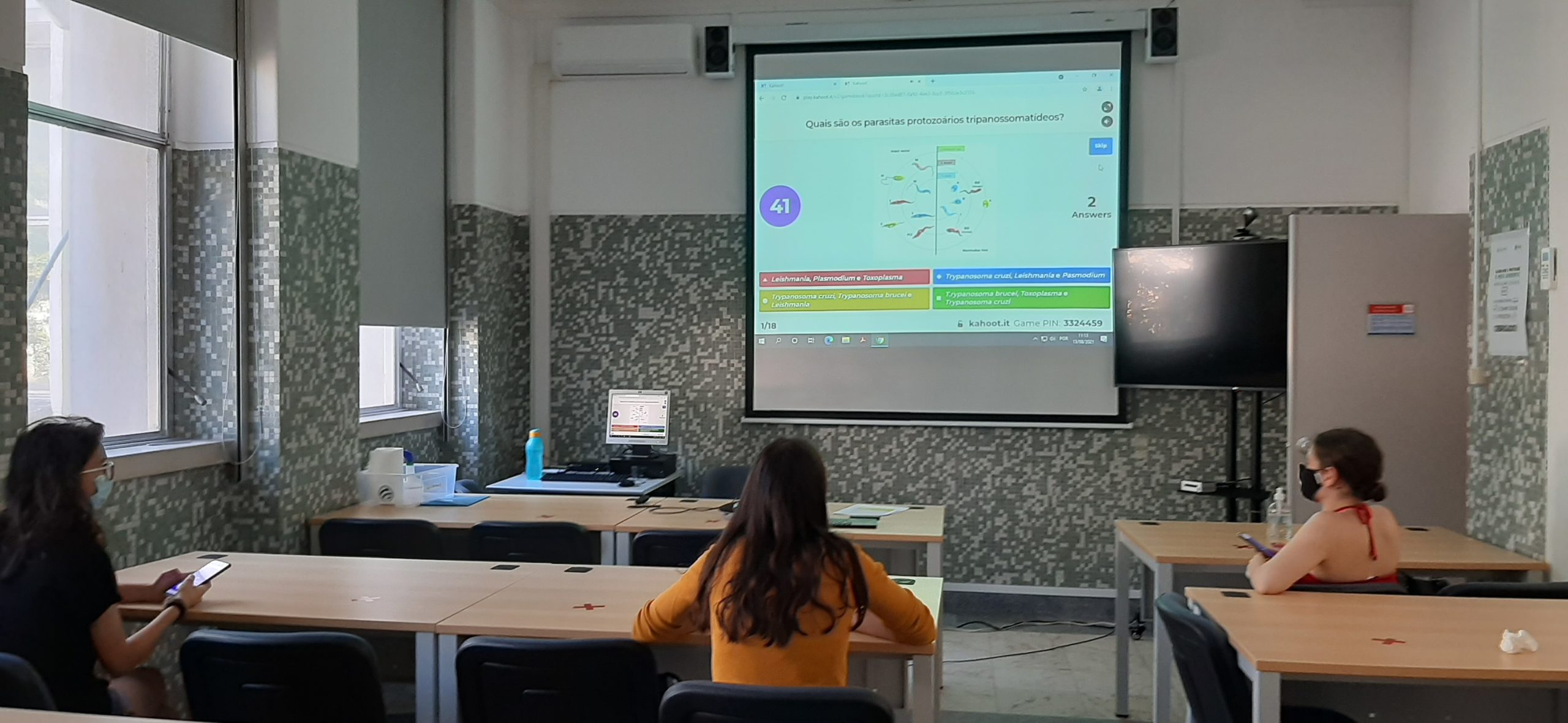
«Ciência Viva no Laboratório – Ocupação Científica de Jovens nas Férias»
«Ciência Viva in the Laboratory – Scientific Occupation of Young People on School Holidays»
«Ciência Viva no Laboratório – Criar Futuro 2021» / «Ciência Viva in the Laboratory – Creating Future 2021»
is a summer internship program for students from year 9 (Portuguese Basic Education’s last year) to year 12 (Portuguese Secondary Education’s last year). It runs from July to September, and aims to promote the teaching of experimental science and to encourage the attraction of young people to scientific careers.
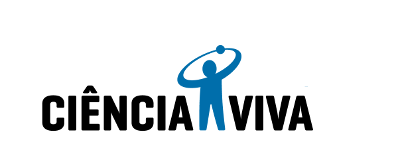 «Ciência Viva» is the branded name of the Portuguese National Agency for Scientific and Technological Culture, meaning «Live Science».
«Ciência Viva» is the branded name of the Portuguese National Agency for Scientific and Technological Culture, meaning «Live Science».
[…] From 09 to 13-08-2021 PSI Parasite Scene Investigation – Come to be an Investigator for One Week Read the news article! […]